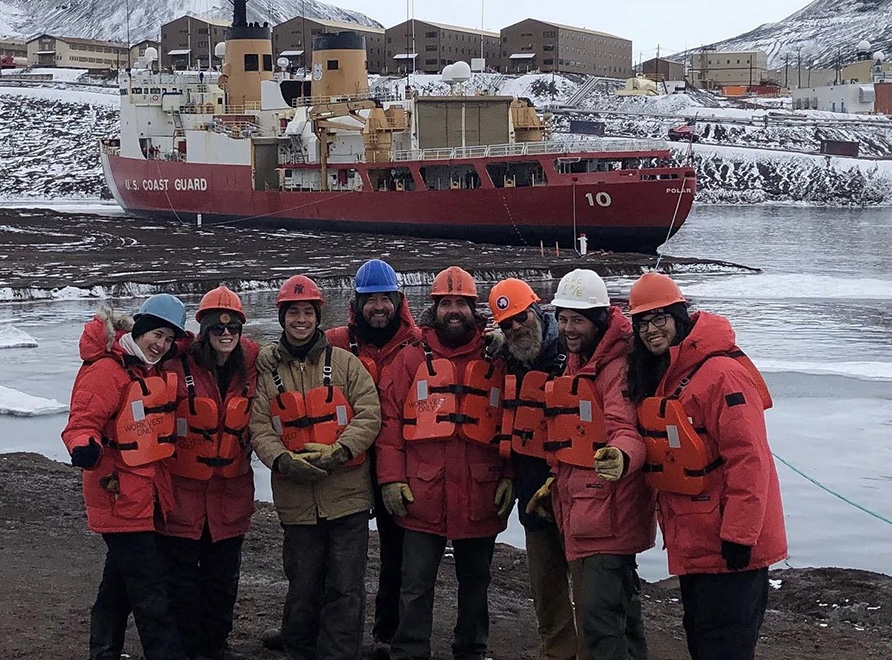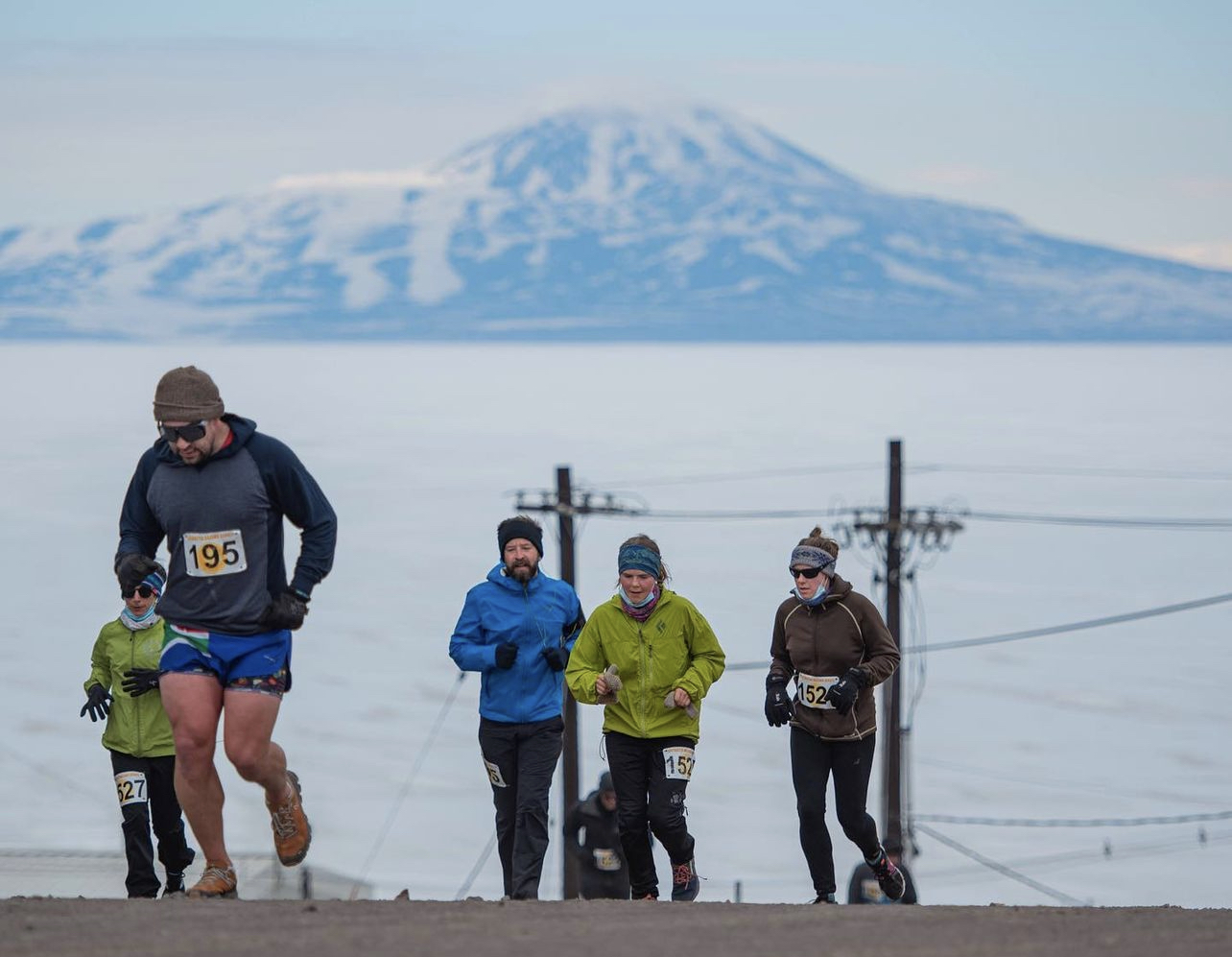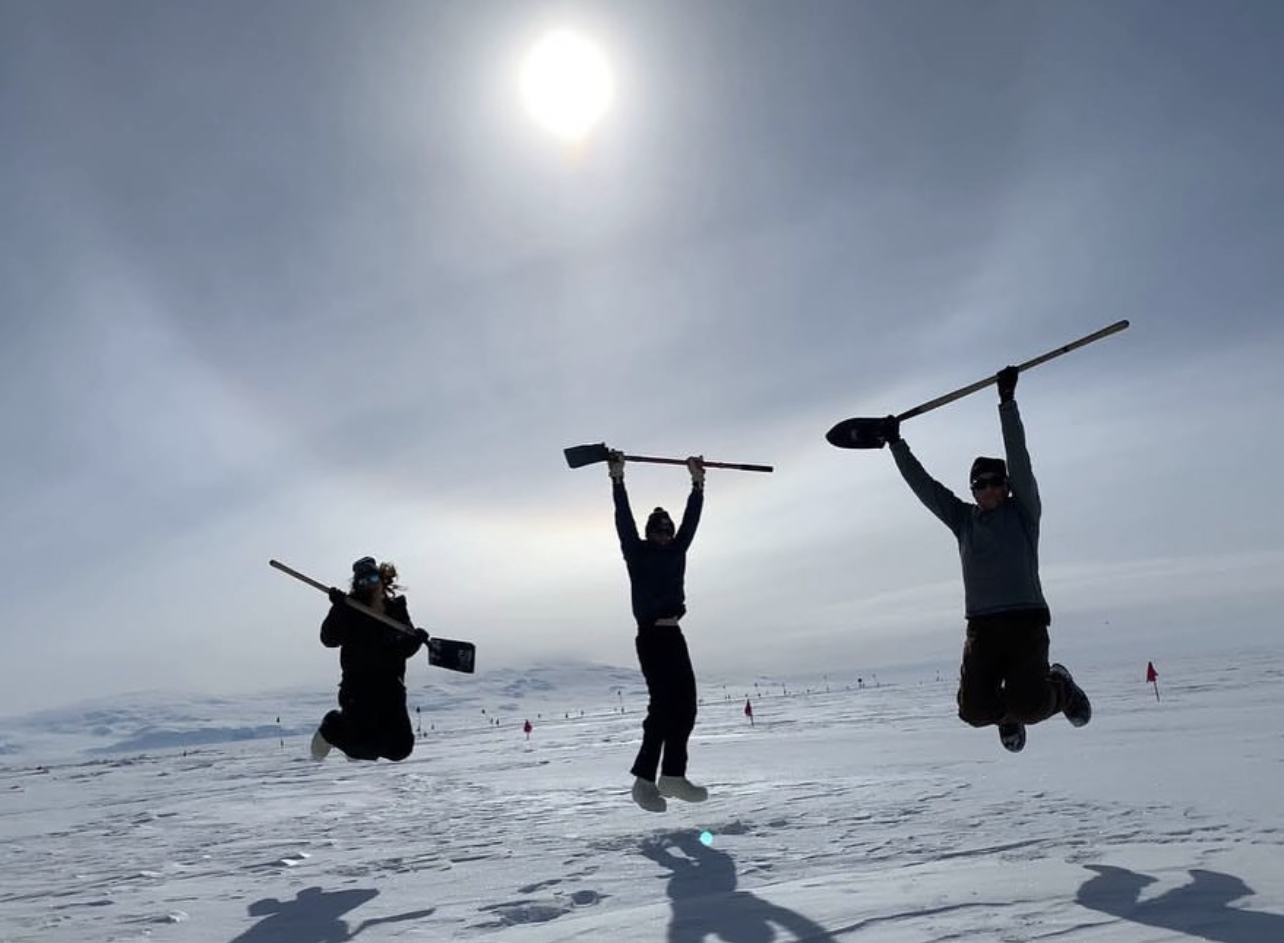On a Rock with a Thousand Strangers
K-State alum Nick Sutcliffe’s stretches working in Antarctica are just some of the more recent adventures in a life that he’s built to be full of them.
Drop your finger anywhere on a world map, and there’s a good chance Nick Sutcliffe has at least been in the vicinity. In fact, some world maps don’t even bother to chart a few of the places Sutcliffe has seen. Antarctica, for example, “isn’t even there in many cases,” he said.
Nonetheless, Sutcliffe will make his fourth trip to the seventh continent next year. For the past couple of Antarctic summers, he’s worked in carpentry supply for one of the contractors responsible for the supply, logistics, construction, and maintenance of the United States’ presence in Antarctica. The company, Amentum, supports all three scientific stations there, including the largest, known as McMurdo Station.

“McMurdo is basically a town of 1,300 people during the summer,” said Sutcliffe, who earned K-State finance and marketing degrees in 2008. “They need two-by-fours and toilet paper and satellite dishes and food. It’s all sourced from the United States and comes in on a boat from California once a year.” He and his fiancée will spend January 2024 as part of the logistics team off-loading all the equipment and materials from that annual ship, which will also carry all the construction materials needed for the season.
“There are about 100 buildings, and they’re not new. The weather isn’t conducive to things staying in good shape,” he said, so the carpentry team is in a constant battle against the elements. They’re also responsible for setting up about a dozen field camps that pop up every year. These field camps and the three major stations support research funded by the National Science Foundation – hundreds of millions of dollars in projects that cover everything from atmospheric science to astrophysics, geology to oceanography.
Ice and Fire

The days are long and tough for people working in Antarctica. They work nine-hour days, six days a week. During their first year at one of the stations, contractors share four-person dorm rooms. With seniority, they get upgraded to a two-person room – complete with their own sinks.
Yes, the weather is at least as bad as the living arrangements. It was 40 below zero Fahrenheit, when Sutcliffe arrived in August 2022, though there are plenty of nice days when the temperature rises to 30 above.
“It’s a lot different than you think,” according to Sutcliffe. “The biggest challenge isn’t the weather. It’s living on a rock at the bottom of the world with a thousand strangers, and you can’t go anywhere.”
Those thousand strangers do well together and make the most of their time, though.
“After work, it’s adult summer camp,” he said.

A recreation director makes sure there’s plenty to do, and the day’s activities are scribbled on a whiteboard in the mess hall. (They’re also published on the station’s internal intranet.) Softball tournaments, hiking, scientific lectures by the station’s 70 or so visiting research groups, concerts, and games are on offer. The sun’s always in the sky, and a staff that works in shifts means that someone’s always up for something.
Last year, Sutcliffe led the station’s personal finance club. He was also a guide on the station’s “Room with a View” tour – a snowmobile trip to a lookout point on Ross Island where McMurdo is located. From there, he would show the group Mount Erebus, the world’s southernmost active volcano named after an ancient Greek deity born of Chaos and personifying darkness.
“It’s hard to fathom, but it’s so special. You sit at the dinner table with an electrician, a doctor, and the world’s leading scientist on whatever topic, and they’re all sharing a bathroom with roommates. Where else is like that?”
The Seeds were Planted
Sutcliffe attributes his love of the Antarctic to two things: parents who raised him to deeply appreciate travel and foreign culture, and a K-State study abroad experience.
As a kid, “we rarely went to the same place twice and saw western Europe, Africa on safaris, the Galapagos Islands, and China,” he said. As a sophomore in college, meanwhile, he spent a semester in Australia. The trip included a visit to the International Antarctic Centre in Christchurch, New Zealand.
“I was an impressionable 19-year-old, and it blew me away. It sparked my curiosity, and my lifelong interest in Antarctica stems directly from that K-State study abroad experience. The seeds were planted, and it was something I couldn’t shake,” Sutcliffe said.
 When he’s not sharing a meal with the world’s most interesting people a few hundred miles from the South Pole, Sutcliffe has a career in real estate development, coordinating with the architects and engineers during the design and planning of residential construction projects. He also invests in real estate himself. That’s come after years in tourism and nonprofit roles in the global destination of Aspen, Colorado, and an MBA from the University of Denver.
When he’s not sharing a meal with the world’s most interesting people a few hundred miles from the South Pole, Sutcliffe has a career in real estate development, coordinating with the architects and engineers during the design and planning of residential construction projects. He also invests in real estate himself. That’s come after years in tourism and nonprofit roles in the global destination of Aspen, Colorado, and an MBA from the University of Denver.
It seems he’s never been one to let a gig get in the way of an adventure or a full life, however. In the last year, alone, he’s spent time backpacking in eastern Europe and New Zealand. South America, a wedding, and, of course, another stint in Antarctica are all on the docket for the next year.
“The path where you spend 40 years on the same career track at the same place never appealed to me,” he said. “K-State was instrumental in making my [approach to] life possible. It showed me that there are so many things that a kid from Kansas could do, that there are so many alternative ways to have an income and a career and a life.”